7 March
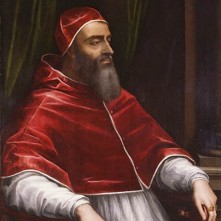
Pope Clement VII
1530 - Pope Clement VII wrote to Henry VIII forbidding him to marry again, and threatening him with excommunication if he did. Click here to read more about this over at The Anne Boleyn Files.
1544 – Executions of Germaine Gardiner, nephew of Stephen Gardiner, and John Larke for denying the royal supremacy. They were hanged, drawn and quartered at Tyburn. Germaine had already been in trouble in 1543 when he was implicated in the Prebendaries' Plot against Archbishop Thomas Cranmer.
1544 – Execution of Robert Singleton, clergyman, for treason at Tyburn. Singleton served Thomas Cromwell as a Preacher and Anne Boleyn as a Chaplain before becoming Arch-priest of St Martin's-le-Grand in Dover. It appears that his execution was down to his heretical writings.
1556 – One of the days on which the Great Comet, or the Comet of Charles V, was seen and recorded by Paul Fabricius, mathematician and physician at Charles V's court.
1574 – Baptism of John Wilbye, composer and musician, at Diss in Norfolk. He composed and published two sets of madrigals, and also contributed “The Lady Oriana”, to a collection in praise of Elizabeth I in 1601, and two madrigals to William Leighton's 1614 collection. Click here to listen to some of his madrigals being performed.
1594 – Death of Sir John Burgh, soldier, from a rapier wound suffered in a duel with John Gilbert, stepbrother of Sir Walter Ralegh. This duel happened during Burgh's second voyage to the West Indies. He was buried in Westminster Abbey, in St Andrew's Chapel.
8 March
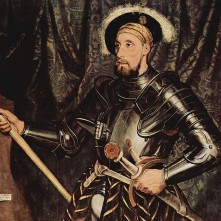
Nicholas Carew
1495 – Birth of John of God (João Cidade) in Montemor-o-Novo, Portugal. He was one of Spain's leading religious figures and the order he created, the Brothers Hospitallers of St. John of God, still has bases around the world today.
1539 - Sir Nicholas Carew was beheaded on Tower Hill for treason. Apparently, a letter was found at the Marchioness of Exeter's home, which was evidence of Carew being involved in a conspiracy with the Marquis of Exeter and Baron Montagu, and plotting with Cardinal Pole, Montagu's exiled brother.
1542 – Burial of Geoffrey Blythe, clergyman, Treasurer of Lichfield, former Warden of King's Hall, Cambridge and former Archdeacon of Stafford. Blythe was one of the divines recorded by martyrologist John Foxe as preaching against Hugh Latimer at Cambridge. Blythe was buried at All Saints' Church in Cambridge.
1569 – Death of Richard Tracy, evangelical reformer and cousin of Protestant martyr James Bainham, at his manor in Stanway, Gloucestershire. Tracy's works included “Profe and Declaration of thys Proposition: Fayth only iustifieth”, which was dedicated to Henry VIII, “‘A Supplycation to our most Soueraigne Lorde, Kynge Henry the Eyght” and “A Bryef and short Declaracyon made wherebye euery Chrysten Man may knowe what is a Sacrament”. In Elizabeth I's reign, he served as a Commissioner of the Peace and Sheriff in Gloucestershire.
9 March
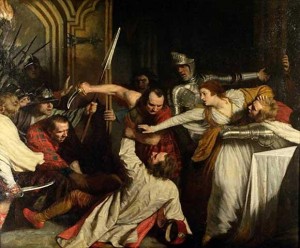
Murder of David Rizzio
1528 – Death of Sir Ralph Egerton, courtier, administrator and a favourite during the early reign of Henry VIII. In 1513, he was a Standard Bearer in France, keeping that office until 1524, and was knighted after the capture of Tournai. He also served as a Knight of the Body and Treasurer of the Council in the Marches of Wales. He was buried in his chantry chapel at Bunbury.
1566 - David Rizzio, the private secretary of Mary, Queen of Scots was assassinated in front of Mary, who was heavily pregnant. He was killed by a large group of conspirators led by Lord Darnley, Mary's husband.
1571 – Death of Sir Clement Heigham, Judge, Speaker of the House of Commons and Chief Baron of the Exchequer in Elizabeth I's reign. He was buried at Barrow Church in Suffolk.
1578 – Death of Lady Margaret Douglas, Countess of Lennox, daughter of Margaret Tudor and Archibald Douglas, 6th Earl of Angus. She was buried at Westminster Abbey, in the Henry VII Chapel.
1579 – Burial of Sir Nicholas Bacon, lawyer, administrator and poetry lover, in St Paul's Cathedral. He had died on 20th February.
1589 – Death of Lady Frances Radcliffe (née Sidney), wife of Sir Thomas Radcliffe, Lord Fitzwalter, and one of Elizabeth I's Ladies of the Bedchamber. She lost the Queen's favour in 1583 due to her husband's enemies turning the Queen against her. Frances died at her home in Bermondsey, and was buried at Westminster Abbey in the Chapel of St Paul. She is known for being the benefactor of Sidney Sussex College at Cambridge.
10 March
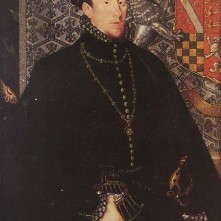
Thomas Howard, 4th Duke of Norfolk
1513 – Death of John de Vere, 13th Earl of Oxford, magnate and one of the main commanders on the Lancastrian side during the Wars of the Roses. At the 1485 Battle of Bosworth, Oxford commanded Henry Tudor's archers. Henry VII rewarded his loyalty and his offices included Lord Admiral, Constable of the Tower of London, Captain of the Yeoman Guard and Lord Great Chamberlain of England.
1524 - Henry VIII suffered a jousting accident after he forgot to lower his visor in a joust against Charles Brandon, Duke of Suffolk. According to the records, “the duke struck the king on the brow right under the guard of the headpiece on the very skull cap or basinet piece”, splintering and sending splinters into the King’s helmet.
1526 – Marriage of Charles V, Holy Roman Emperor, and Isabella of Portugal. Their children included Philip II of Spain, who went on to marry Mary I.
1538 – Birth of Thomas Howard, 4th Duke of Norfolk, eldest son of Henry Howard, Earl of Surrey, and Frances de Vere, at Kenninhall Palace in Norfolk. Like his father before him, Howard was executed as a traitor, being beheaded on 2nd June 1572 for plotting to marry Mary, Queen of Scots.
1572 – Death of William Paulet, 1st Marquis of Winchester, nobleman and administrator. His offices under Henry VIII included Lord Treasurer, Great Master of the Household and Lord Great Chamberlain, and he served under Edward VI, Mary I and Elizabeth I.
11 March
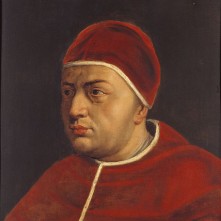
Pope Leo X
1513 - Giovanni di Lorenzo de' Medici was proclaimed Pope Leo X after being elected on 9th March. He was Pope until December 1521.
1521 - Death of Andrew Forman, diplomat and Archbishop of St Andrews, at Dunfermline. He was buried at St Andrews Cathedral.
1563 – Death of Antoine de Noailles, soldier, Admiral of France and French ambassador to the English court during the reign of Mary I, at Bordeaux. He was also Chevalier of the order of St Michel. His body was buried at Noailles, but his heart was buried in Bordeaux Cathedral. It was rumoured that Noailles was poisoned.
1609 - Burial of William Warner, poet and lawyer, at Great Amwell in Hertfordshire. He was buried there at the church of St John the Baptist. His works included “Albion's England” and “Pan his Syrinx, or Pipe, Compact of Seven Reedes”.
1611 - Giles Fletcher the Elder, poet, diplomat and member of Parliament during Elizabeth I's reign, died in London.
12 March
1537 – Execution of William Haydock, Cistercian monk. He was hanged for his involvement in the Pilgrimage of Grace. Interestingly, his remains were discovered in the family's home, Cottam Hall, in the early 19th century because his nephew had saved his body and hidden it there.
1539 - Thomas Boleyn, Earl of Wiltshire and Earl of Ormond, and father of Queen Anne Boleyn, died at Hever Castle, aged around sixty-two. He was laid to rest at St Peter's Church, Hever.
1564 – Baptism of Christopher Bales, Roman Catholic priest and martyr. Bales was executed by hanging on 4th March 1590 in Fleet Street. Two others, Nicholas Horner and Alexander Blake, were executed at Smithfield and Grays Inn Lane for harbouring him.
1573 (11th or 12th) – Death of Edmund Brydges, 2nd Baron Chandos, soldier, politician, Lord Lieutenant of Gloucestershire and Vice-Admiral of Gloucestershire. He was laid to rest at Sudeley.
1628 – Death of John Bull, composer, musician and organ builder, at Antwerp.
13 March
1540 – Death of Henry Bourchier, Earl of Essex. He died after falling off a horse, and his title was given to Thomas Cromwell. His daughter, Anne, married Sir William Parr, brother of Queen Catherine Parr.
1543 – Death of Sebastian Giustinian, the Venetian diplomat. He died in Venice at the age of eighty-three. Giustinian served as the Venetian ambassador to England from 1514 to 1519, and wrote 226 letters during his embassy there. He became ambassador to France in 1526 and procurator of St Mark in 1540.
1594 – Death of John Woolton, Bishop of Exeter, from asthma at the bishop's palace in Exeter. He was buried in the cathedral choir.
1601 – Execution of Welshman Sir Gelly Meyrick at Tyburn. He was hanged, drawn and quartered for his part in the rebellion led by Robert Devereux, 2nd Earl of Essex. Meyrick attended Essex as Steward of his household and Receiver-General of his rents and revenues. He was executed with Sir Henry Cuffe, author, politician and fellow rebel.
1619 – Death of Richard Burbage, actor and star of Shakespeare's Lord Chamberlain's Men and the King's Men. He was named in Shakespeare's will of 1616 as a "fellow", meaning a close friend or colleague.

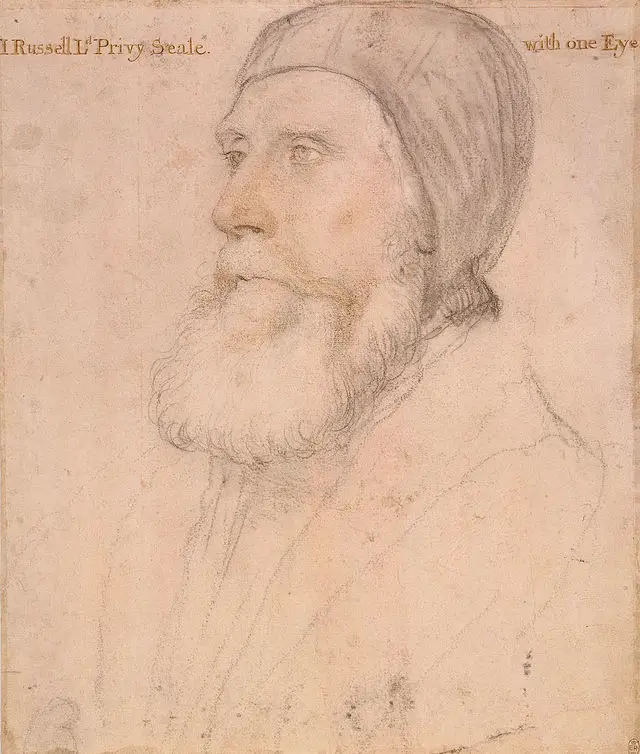
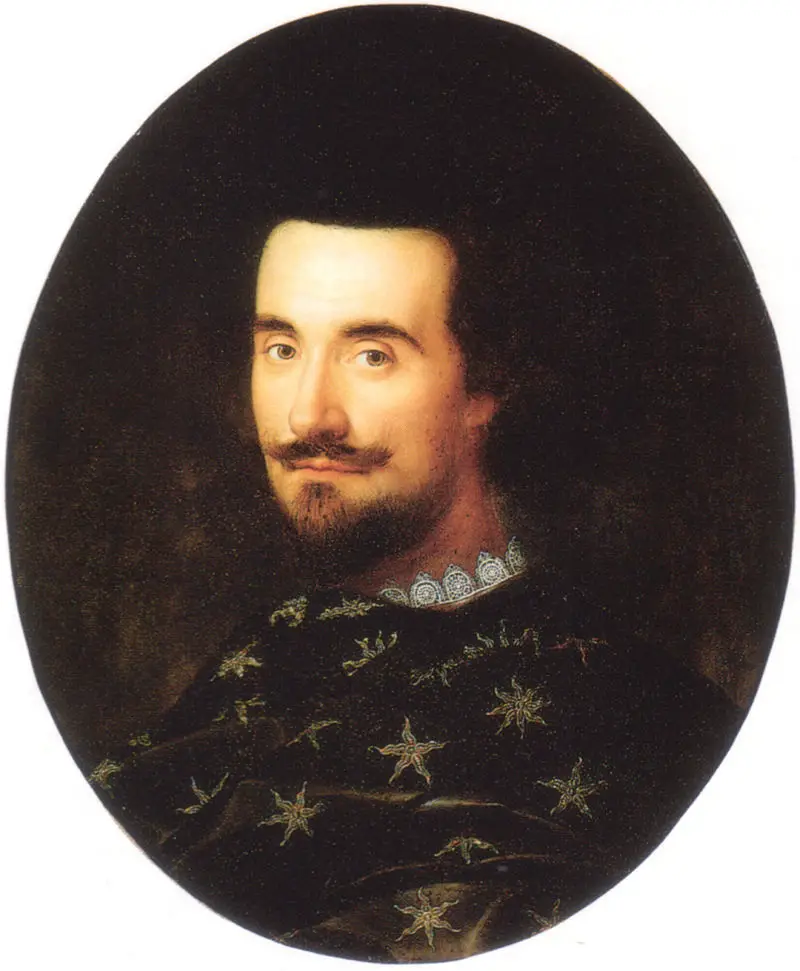
Leave a Reply